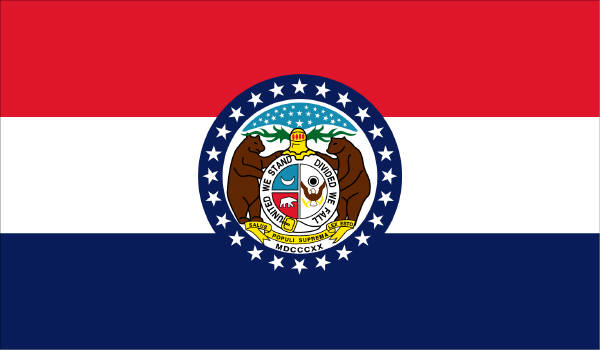Missouri Proposition 3, Repeal Prohibition Laws Initiative (1926)
| Missouri Proposition 3 | |
|---|---|
| Election date |
|
| Topic Alcohol laws |
|
| Status |
|
| Type Initiated state statute |
Origin |
Missouri Proposition 3 was on the ballot as an initiated state statute in Missouri on November 2, 1926. It was defeated.
A "yes" vote supported enacting a law repealing laws that prohibited the manufacture, sale, and possession of alcohol. |
A "no" vote opposed enacting a law repealing laws that prohibited the manufacture, sale, and possession of alcohol. |
Election results
|
Missouri Proposition 3 |
||||
|---|---|---|---|---|
| Result | Votes | Percentage | ||
| Yes | 294,388 | 34.06% | ||
| 569,931 | 65.94% | |||
-
- Results are officially certified.
- Source
Text of measure
Ballot title
The ballot title for Proposition 3 was as follows:
| “ | Proposition No. 4- By initiative petition- An act to repeal Article VII, Chapter 52, Revised Statutes of Missouri, 1919, entitled "Prohibition" and to repeal an act approved March 28, 1921, amending Article VII, Chapter 52, Revised Statutes of Missouri, 1919, and to repeal an act approved April 3, 1923, in relation to the manufacture, sale, possession, transportation and disposition of intoxicating liquors and the issuance and service of search warrants. | ” |
Path to the ballot
An initiated state statute is a citizen-initiated ballot measure that amends state statute. There are 21 states that allow citizens to initiate state statutes, including 14 that provide for direct initiatives and nine (9) that provide for indirect initiatives (two provide for both). An indirect initiated state statute goes to the legislature after a successful signature drive. The legislatures in these states have the option of approving the initiative itself, rather than the initiative appearing on the ballot.
In Missouri, the number of signatures required for an initiated state statute is based on the number of votes cast for governor in the state's most recent gubernatorial election. In two-thirds of Missouri's congressional districts, proponents must collect signatures equal to 5% of the gubernatorial vote for initiated constitutional amendments. A simple majority vote is required for voter approval.
See also
External links
Footnotes
State of Missouri Jefferson City (capital) | |
|---|---|
| Elections |
What's on my ballot? | Elections in 2026 | How to vote | How to run for office | Ballot measures |
| Government |
Who represents me? | U.S. President | U.S. Congress | Federal courts | State executives | State legislature | State and local courts | Counties | Cities | School districts | Public policy |



